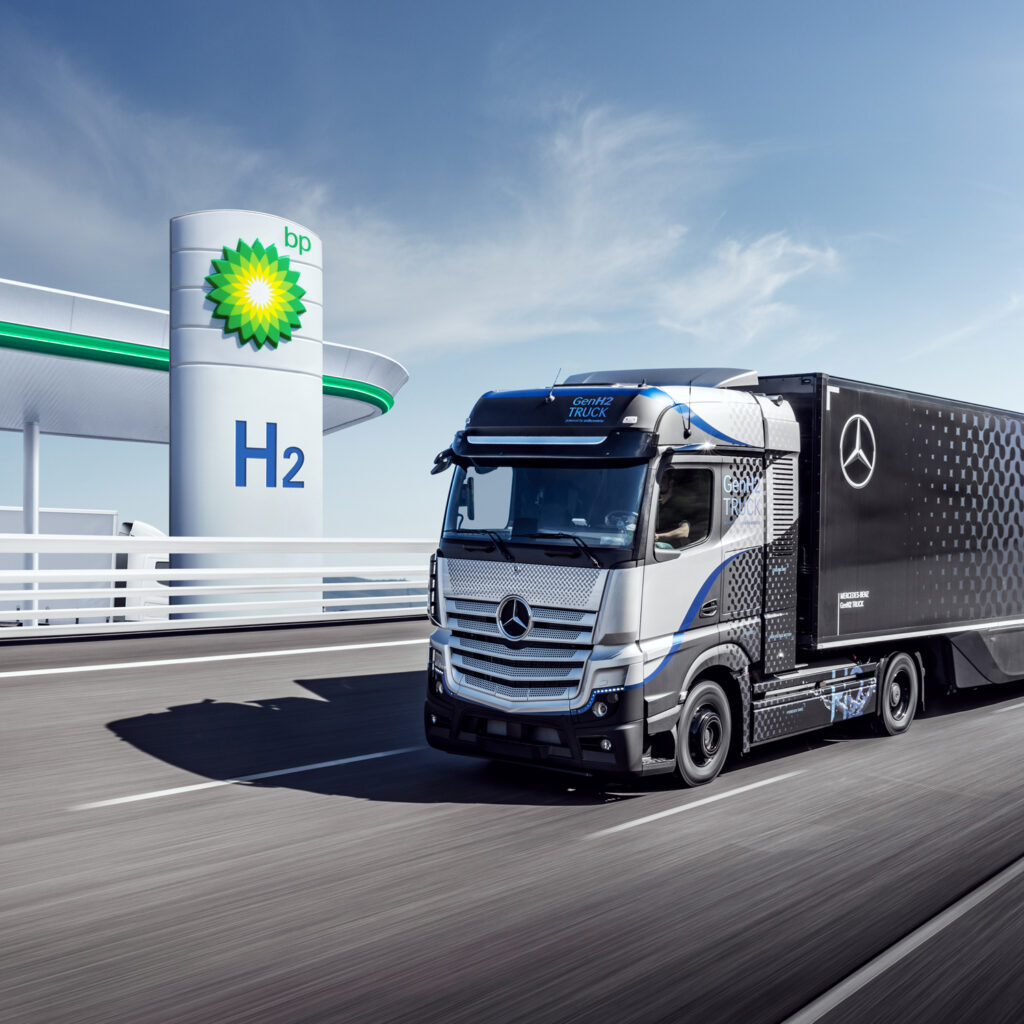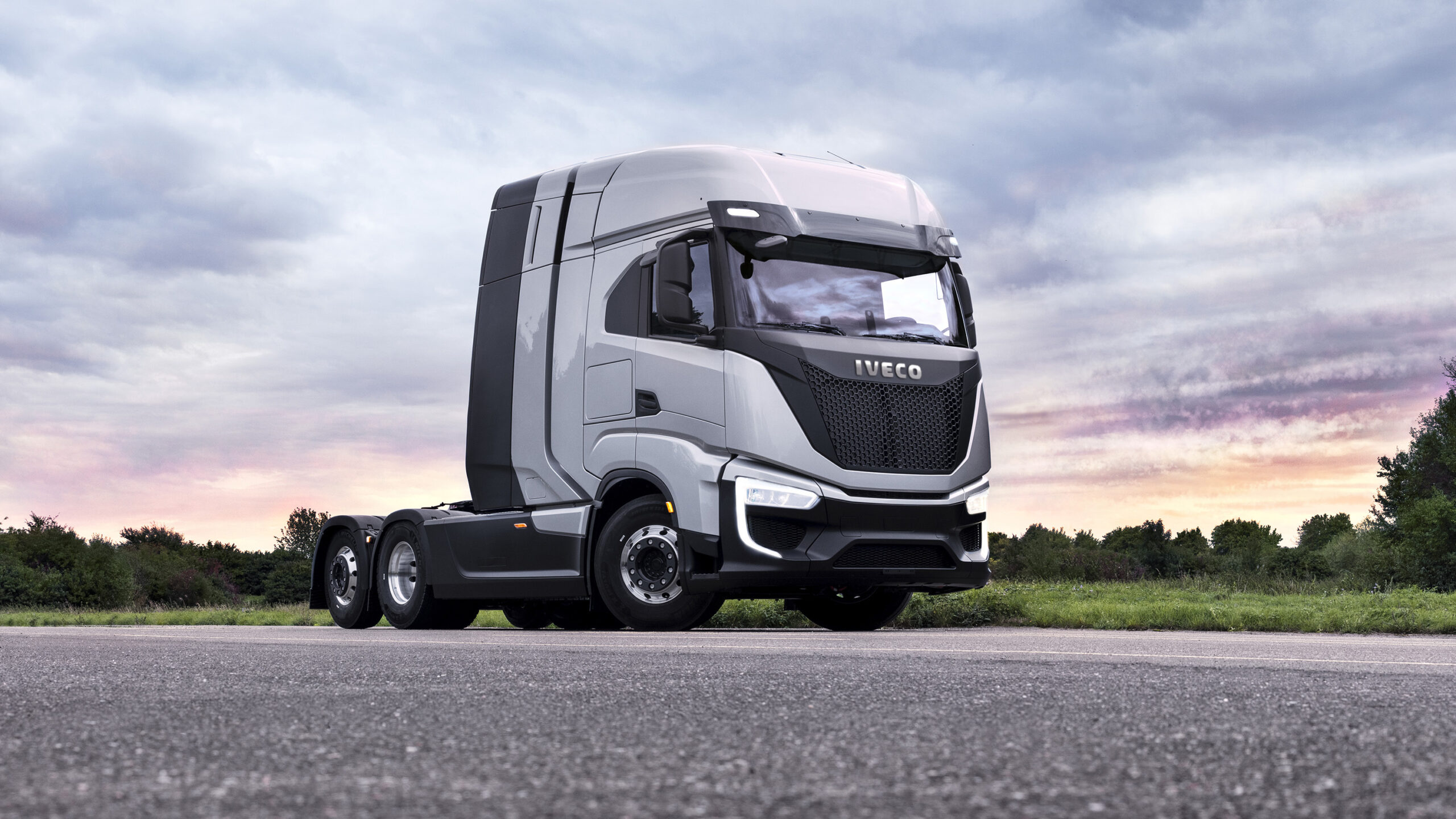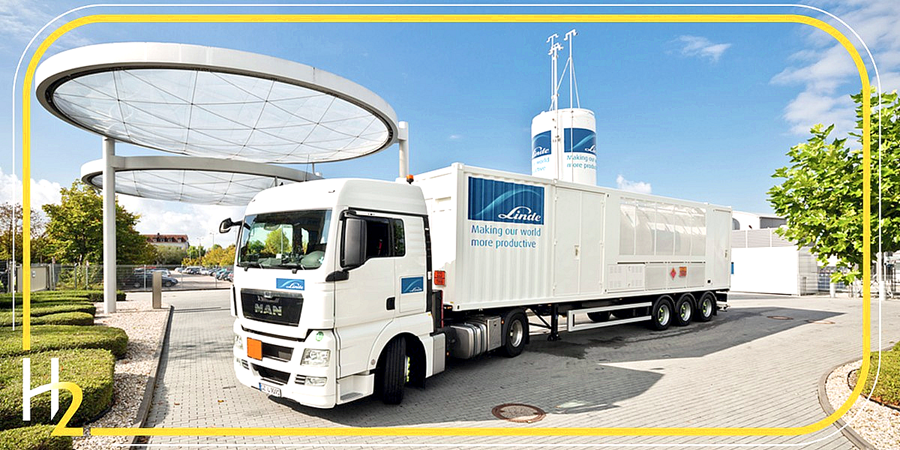The H2Accelerate collaboration has published the latest in a series of whitepapers calling for a more robust UK policy framework to support hydrogen trucks and proposing changes that would enable the rollout of a large-scale hydrogen trucking sector.
The latest whitepaper from the H2Accelerate collaboration focuses on the UK landscape, examining the existing UK policy framework for zero-emission trucks and proposing changes that would facilitate the commercialisation of the hydrogen truck sector.
Exploring the existing UK policy framework
The UK was among the first countries to develop a hydrogen strategy and has historically acted as a world leader in implementing policy support for low-carbon transport. The whitepaper points out that long-term government policies, such as the ban on all non-zero emission HGVs by 2040 and the inclusion of fuel-cell HGVs in both the Future Freight plan and the Hydrogen Strategy, demonstrate the expectation that hydrogen-powered HGVs are an integral part of the road to net-zero by 2050.
The recent publication of the UK Zero-Emission Road Freight Demonstrator (ZERFD) shows that the UK government is willing to support the early-stage deployment of zero-emissions trucks. However, longer-term support will be needed to provide vehicle OEMs with the certainty to invest in right-hand drive vehicles and give fuel suppliers the confidence to develop a nationwide network of hydrogen refuelling stations.

The whitepaper goes on to argue that a lack of such policies is likely to mean the UK will lag behind significant markets such as the US and the EU when it comes to both the development and commercialisation of hydrogen HGVs. This also means missing out on the employment opportunities created by the sector.
Oliver Bishop, Global Head of Hydrogen Mobility at BP, one of the participants of the H2Accelerate collaboration, says: ‘At BP, we are excited by the opportunity to invest in zero-emissions refuelling for heavy-duty vehicles in the UK. We are exploring opportunities to kick-start a UK hydrogen mobility offer to our truck customers. However, to make further investments that will enable the large-scale deployment of heavy-duty hydrogen vehicles across the UK, we need sustained supporting policies from the UK government.’
Policy recommendations
The policy paper outlines a series of policy recommendations that H2Accelerate members believe will foster confidence in the UK’s commitment to hydrogen trucking and enable the ambitious targets to ban all non-zero-emission heavy-duty vehicles by 2040.
The key recommendations are: for the government to set out a minimum level of alternative refuelling network coverage, with large-scale hydrogen refuelling stations located every 200km on major networks by 2030, and the requirement for a more comprehensive network by 2035 to support the planned ban on sales of diesel HGVs. This would consist of 250 refuelling stations with a total capacity of 500 tonnes of hydrogen per day.
To strengthen and broaden the scope of the plug-in truck grant, which currently doesn’t apply to any hydrogen HGVs,to allow all available zero-emission HGVs to be assessed, and to cover 80% of the difference in cost between diesel and hydrogen-fuelled trucks for the first 1,000 trucks. The whitepaper argues that the current level of the grant – 20% of the purchase price of zero-emission HGVs up to £25,000 – is insufficient to reach a comparable total cost of operation with diesel vehicles.
To adapt the UK standards for renewable hydrogen so that hydrogen production plants can be connected to existing renewable electricity plants, provided they enter operation within 36 months. According to the collaboration, current UK standards limit the delivery of a wide-spread hydrogen refuelling network.
To review the Hydrogen Production Business Model’s Agreement to allow the participation of third-party companies so that hydrogen production projects do not need to develop the entire downstream supply chain. Currently, fuel suppliers are forced to create their own distribution chains and sign up customers for projects directly instead of using existing third-party companies specialised in the distribution and supply of fuel.
Finally, to create exemptions for zero-emission trucks from levies, tolls, and taxes while the sector scales up. These are currently mainly treated the same as diesel HGVs, but providing a financial differentiation for zero-emission trucks would help close the gap in the total cost of operation.
The above measures, implemented together, would allow H2Accelerate members, as well as other hydrogen truck manufacturers and hydrogen refuelling players, to invest with confidence in a zero-emission long-haul truck sector in the UK.
H2Accelerate collaboration spokesperson Hannah Bryson-Jones says: ‘The UK government has the opportunity to unlock large-scale investment in long-haul zero-emissions freight. Ambitious targets have been set regarding the complete ban on diesel trucks, but these can only be achieved if the sector is supported in scale-up starting today. Aligned and progressively larger deployments of low carbon hydrogen production, refuelling, and trucks will secure a smooth transition to zero-emission heavy-duty vehicles.’

ABOUT H2ACCELERATE
H2Accelerate is a collaboration agreement signed between the participants (members include vehicle manufacturers Daimler Truck, Iveco, and Volvo and hydrogen infrastructure players BP, Linde, Shell, and TotalEnergies) under which the participants will work together to:
- seek public support to fund early pre-commercial projects to activate the market on the path towards a mass market roll-out;
- communicate around the technical and commercial viability of hydrogen-fuelled trucking at scale; and
- discuss with policymakers and regulators to encourage policies that support a sustainable and speedy activation of the zero-emissions long-haul trucking market.
To see H2Accelerate spokesperson Hannah Bryson-Jones deliver the keynote presentation at Fleet Vision International – THE SHOW on April 11, at the Guildhall in London, please, register for free here.




